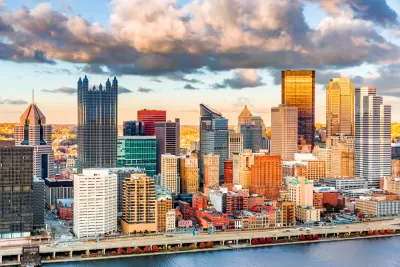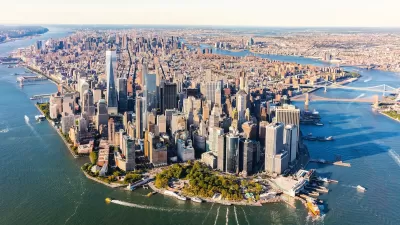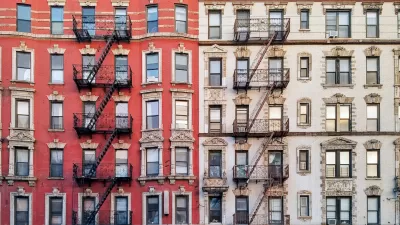The city is proposing a $2.1 million boost to state and county efforts aimed at converting office buildings to affordable workforce housing.

“The City of Pittsburgh announced its intention to present legislation to Pittsburgh City Council that would reappropriate $2.1 million in American Rescue Plan Act funds to a new project: converting historic office buildings into residential buildings.” According to Ollie Gratzinger, writing in Pittsburgh Magazine, “This will add to the $3 million that the commonwealth has already granted to the Urban Redevelopment Authority for this purpose.”
The city’s efforts piggyback on county and state initiatives aimed at increasing the supply of affordable housing in central parts of the city. “The proposed plan comes amid a wave of change for Downtown, which had garnered an unsafe reputation prior to the pandemic, and then suffered great economic losses during it. In a recent report, the Pittsburgh Downtown Partnership said that Downtown is still only 56% recovered from those losses as of May 2022.”
Pittsburgh’s Downtown Mobility Plan, completed by the Pittsburgh Downtown Partnership in May 2021,“offers a grand vision of an inclusive Downtown that’s safe, accessible and easy to navigate. Part of the plan includes the widening of sidewalks on Smithfield Street, which organizers say is “primed for a facelift,” as well as enhanced green infrastructure and more.”
Gratzinger points out that “Increasing residential housing Downtown, where rent prices tend to be high and unaffordable for many, has been on Mayor Ed Gainey’s agenda since he was elected; in May, he expanded the city’s inclusionary zoning district, requiring any new development with 20 units or more to designate at least 10% for low-income housing.”
FULL STORY: Proposed Legislation Could Bring Affordable Housing to Downtown’s Historic Office Buildings

Study: Maui’s Plan to Convert Vacation Rentals to Long-Term Housing Could Cause Nearly $1 Billion Economic Loss
The plan would reduce visitor accommodation by 25,% resulting in 1,900 jobs lost.

North Texas Transit Leaders Tout Benefits of TOD for Growing Region
At a summit focused on transit-oriented development, policymakers discussed how North Texas’ expanded light rail system can serve as a tool for economic growth.

Using Old Oil and Gas Wells for Green Energy Storage
Penn State researchers have found that repurposing abandoned oil and gas wells for geothermal-assisted compressed-air energy storage can boost efficiency, reduce environmental risks, and support clean energy and job transitions.

Private Donations Propel Early Restoration of Palisades Playground
Los Angeles has secured over $1.3 million in private funding to restore the Pacific Palisades playground months ahead of schedule, creating a modern, accessible space that supports community healing after recent wildfires.

From Blight to Benefit: Early Results From California’s Equitable Cleanup Program
The Equitable Community Revitalization Grant (ECRG) program is reshaping brownfield redevelopment by prioritizing projects in low-income and environmental justice communities, emphasizing equity, transparency, and community benefits.

Planting Relief: Tackling Las Vegas Heat One Tree at a Time
Nevada Plants, a Las Vegas-based nonprofit, is combating the city’s extreme urban heat by giving away trees to residents in underserved neighborhoods, promoting shade, sustainability, and community health.
Urban Design for Planners 1: Software Tools
This six-course series explores essential urban design concepts using open source software and equips planners with the tools they need to participate fully in the urban design process.
Planning for Universal Design
Learn the tools for implementing Universal Design in planning regulations.
Ascent Environmental
Borough of Carlisle
Institute for Housing and Urban Development Studies (IHS)
City of Grandview
Harvard GSD Executive Education
Toledo-Lucas County Plan Commissions
Salt Lake City
NYU Wagner Graduate School of Public Service





























